Global Health KeyÌıProgramsÌı
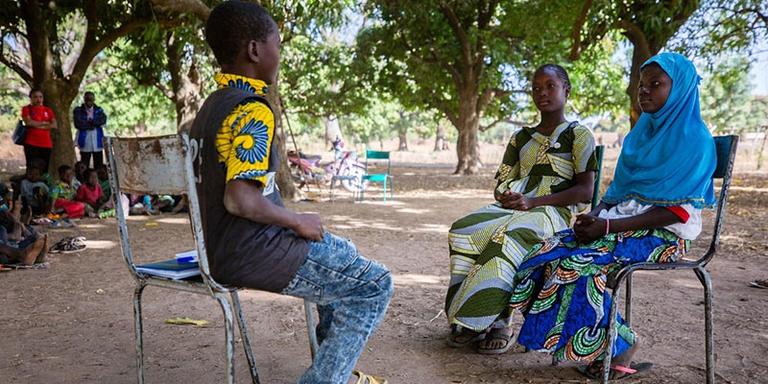
Ìı
Kulawa Tipping Point
USAID Kulawa (2020-2025) is the USAID Resilience in the Sahel Enhanced II (RISE II) Health Services Delivery , which works to improve access to and use of quality health services, strengthening ownership and management by communities, local government, and service providers. USAID Kulawaâmeaning âcareâ in Hausaâstrives to close the equity gap (the difference in abilities to access services) in maternal, newborn, and child health (MNCH), family planning/reproductive health (FP/RH), and nutrition service access and use, with a special focus on youth. USAID Kulawa is implemented across 17 districts in three regions, reaching 1.4 million women of reproductive age, 1.1 million children under five, and 2.6 million youth. USAID Kulawa also provides an implementation platform for Tipping Point, a 4.5-year research study funded by the Bill & Melinda Gates Foundation and led by the University of California San Diego. Through Tipping Point, 91²Ö¿â is implementing a randomized controlled trial to explore whether a social network-based intervention is more effective and more scalable than traditional approaches to improving family planning uptake among married adolescents.
Connect
Connect (2019-2024), a funded by the Bill & Melinda Gates Foundation, leverages and strengthens local health systems to improve family planning and maternal and newborn health among first-time parents (FTPs, ages 15-24). Connect integrated postpartum family planning (PPFP) for FTPs into the community-based nutrition Lishe Endelevu project in Tanzania. During small-scale testing, surveys found that those reached by a Connect-supported community health worker were 39% more likely to be using modern PPFP, and 28% more likely to have discussed PPFP with a male partner. In Bangladesh, Connect enhanced the MaMoni Maternal and Newborn Care Strengthening Project (MaMoni MNCSP) to improve coverage, timing, and quality of postnatal care (PNC), inclusive of PPFP, for FTPs. Similarly, surveys in Bangladesh found that receiving a home visit was associated with a 15% increase in PNC visits within 72 hours, and a 20% increase in modern PPFP use. With these positive findings, Connect is implementing and evaluating impact in additional areas of Bangladesh and Tanzania, and capturing learning to catalyze global efforts to effectively and efficiently support FTPs.
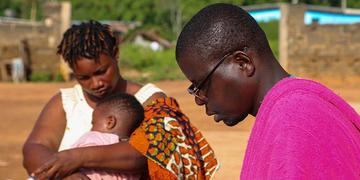
A family gets a health check in Cote d'Ivoire.
Ìı
Agency for All
Agency for All (2022-2027) is a USAID-funded consortium-led Project that generates and applies evidence on agency, empowerment, and effective social and behavior change (SBC) strategies to convert intention into action to improve health. Agency for Allâs for women, girls, and communities through locally led, equitable partnerships focused on understanding agency and its ability to convert intentions into action within SBC programs.
Ìı
Breakthrough ACTION
Breakthrough ACTION (2017-2025) ignites collective action and encourages people to adopt healthier behaviorsâfrom using modern contraceptive methods and sleeping under bed nets to being tested for HIVâby forging, testing, and scaling up new and hybrid approaches to social and behavior change (SBC). is an eight-year cooperative agreement funded by the United States Agency for International Development (USAID) to lead their SBC programming around the world. Breakthrough ACTION is a partnership led by the Johns Hopkins Center for Communication Programs in collaboration with 91²Ö¿â, ThinkPlace, ideas42, Camber Collective, International Center for Research on Women, and Viamo.
Niger: USAID Kulawa
USAID Kulawa (2020-2025)Ìı increase utilization of quality child health, family planning, and nutrition services in 17 districts across three regions of Niger. USAID Kulawaâmeaning âcareâ in Hausaâseeks to improve access to quality health services and strengthen ownership and management of health services by communities, in partnership with citizens, government, and service providers. In 2022, 246,897 children under-five were treated for diarrhea. In addition, a total of 193,070 children were immunized against measles before their first birthday. To strengthen health coverage and reach zero dose and under-immunized children, the project supported outreach and mobile clinic activities to reach 18,030 children with immunization services in 2022.
Ethiopia, Niger, & Nigeria: CORE Polio
In Ethiopia, Niger, and Nigeria, the USAID-funded CORE Polio projects aim to contribute to the eradication of polio, strengthen routine immunization in key areas and ultimately reduce the rates of child deaths and disease caused by vaccine preventative diseases (VPDs). Each project aims to build partnerships between international, national, and sub-national organizations involved in polio and support organizations in their efforts to strengthen national and regional routine immunization systems. These projects also support organizationsâ efforts to detect and report cases of polio, as well as other infectious diseases, and support timely documentation and use of information to continuously improve the quality of polio eradication (and other related health) activities.
Kenya: Reducing Infectious Disease in Children under Age Five
This Pfizer Foundation-funded three-year project (2020-2022) increased sustainable immunization among populations with low coverage in Kenya. Our collaborative efforts with the MoH improved access to and use of high-quality immunization services among semi-nomadic and nomadic pastoralists in Mandera and Wajir counties, and in the Kibera urban slum of Nairobi County. The project facilitated full immunization coverage for 93,879 children and we reached 200,554 community members with relevant messages on health, nutrition, and child vaccination. Immunization coverage increased in the project area by 26 percentage points (from 62% at baseline in 2020 to 88% at endline in 2022), contributed to a decrease in the incidence of vaccine preventable disease outbreak among children, including childhood pneumococcal disease, rotavirus, and diarrhea, and a reduction in overall under-five mortality.
By project end, we strengthened MoH and public health systems in Nairobi, Mandera and Wajir counties to ensure that routine and supplementary immunization activities are carried out efficiently by the government and that strategies are in place to reach unvaccinated children in the hard-to-access areas. Additionally, we also extended our support to the Kenya MoH for the transition from Gavi (the Vaccine Alliance) support to a self-reliance national immunization program in near future. Results from a cost-efficiency analysis of this project in Kenya revealed the approximate cost for a fully immunized child as $21 US dollars, while the per capita cost for communicating health messages to community members and health care worker training was $10 US dollars, and UNICEF estimated approximately $32 US dollars as vaccine delivery cost (=total cost â cost of vaccine and supply) per fully vaccinated child with standard schedule for children < 24 months).
Ìı
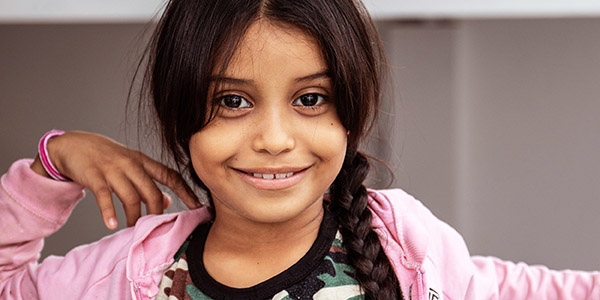
Global Fund to Fight AIDS, Tuberculosis and Malaria Programming
91²Ö¿â has supported HIV and TB programs through the Global Fund in country and regional grants since 2009. From 2021-2023, we support six countries: Bangladesh, Bhutan, Côte dâIvoire, Mali, Myanmar, and Nepal. Our programs target key populations including orphans and vulnerable children, youth at risk, pregnant mothers, and their children. We focus on providing prevention services/treatment, counselling, case management, improved quality of care, strengthened diagnostic technology, improved governance and accountability of programs, strengthened disease surveillance, and treatment options. Several of our key Global Fund programs are highlighted below:Ìı
Ìı
Bangladesh | HIVÌı
91²Ö¿â, in a leading role in the national HIV and AIDS response in Bangladesh, has managed five Global Fund HIV grants in two capacities â management agency (2004 - 2009) and principal recipient (2009 - 2023). (2021 â 2023) provides high-impact and cost-effective interventions for key populations to prevent the spread of HIV and minimize the impact of AIDS on individuals, families, and communities affected by the epidemic. In collaboration with the Government of Bangladesh, our program covers 18 districts. And in partnership with five local partners, we provide HIV prevention services, increase access to testing and treatment, and strengthen the national HIV and AIDS response through supporting a functional health information system, improved reporting, and enhanced capacity of healthcare personnel. Since 2021, we have expanded our program to reach 14,035 people who inject drugs, representing a 48% increase in coverage from the previous grant period, and 30,000 female sex workers (a 62% increase in coverage).
Bhutan | HIVÌı
The Sustainability of HIV Services for Key Populations in Asia Program (SKPA)-2 (2022 - 2025) is implemented through the 91²Ö¿â Country Office in Bhutan. partners with governments, key populations, and their communities to increase the financial sustainability of community-focused programs, strengthen the use of real-time high-quality data to inform programmatic design, bridge HIV service delivery gaps, and work on strengthening systems that support community ownership and action. One of the main achievements of this program is the successful implementation of the HIV self-testing demonstration project. The scale-up of this innovative approach is expected to enhance access and uptake of HIV testing that can potentially contribute towards closing the current case detection gap.
Côte dâIvoire | MalariaÌı
91²Ö¿â has been the principal recipient of the in Côte dâIvoire since 2016. Through this grant, we and our five sub-recipients support the National Malaria Strategy Plan 2021-2025, which prioritizes the need to scale up an integrated package of community-based activities to optimize the efforts of the Ivorian government to combat malaria. The project aims to achieve effective control of malaria in Côte dâIvoire by 2025 via three objectives (i) - Reduce malaria incidence by at least 75% compared to 2015; (ii) - Reduce the mortality due to malaria by at least 75% compared to 2015; and (iii) - strengthen the program's management, coordination, and partnership capacities to provide high-impact interventions. To date, the project has successfully trained an estimated 8,500 community health workers, 2,044 womenâs groups, 271 staff, 1,248 nurses, and 1,147 midwives across 53 health districts and 16 health regions.
Mali â HIV & TB
91²Ö¿â in Mali implements HIV programs to reduce illness and death from both HIV and AIDS and TB among vulnerable populations in the health district of Mopti, one of the conflict-affected regions in central Mali. Our work focuses on strengthening the health system to provide quality health services to program participants and reducing the burden of HIV and tuberculosis epidemics through effective diagnosis and treatment services. To date, the project has supported 28 health facilities and 52 community health worker sites, treating 185 cases of all forms of TB and 186 people living with HIV with ART. The project also tested 14,009 pregnant women to increase the percentage of people living with HIV who know their status.
Myanmar - HIV, TB, and Malaria
91²Ö¿â has been the co-principal recipient of three grants under the Global Fund in Myanmar since 2011. operate across 117 of 330 townships in the country. We provide comprehensive HIV prevention, diagnosis, and treatment services for key populations, integrated HIV and TB services, promote human rights, and strengthen community systems to create an enabling environment free of discrimination for at-risk and vulnerable populations. is active across 182 townships and includes active TB case finding efforts, diagnosis, and treatment through community and facility-based interventions, as well as collaboration with the private sector. Through , we provide long-lasting insecticidal nets to vulnerable populations and case management services spanning from early diagnosis through treatment in 132 townships. Additionally, we support capacity building through training on malaria surveillance for service providers and intensified case detection in high-risk areas. In addition to these programs, we received funding to implement COVID-19 interventions, including provision of personal protective equipment to health care providers and communities, effective surveillance, diagnosis, and treatment, community mobilization activities to increase awareness, as well as capacity strengthening of the healthcare workforce across all areas.
Nepal - HIV, TB, and Malaria
In Nepal, 91²Ö¿â supports programs that target HIV, TB, and malaria through the Global Fund. Our HIV program contributes to the goals to achieve HIV testing, treatment, and viral suppression rates of 95%-95%-95% by 2025 and increase equitable access to HIV services. 91²Ö¿ââs TB program in Nepal aims to reduce TB incidence through increased disease prevention, case detection, and diagnosis, TB and HIV co-infection management, and drug-resistant TB management. Additionally, we support Nepalâs long-term National Malaria Elimination Strategy (2014-2025) with the vision of a âmalaria free Nepal by 2025â through our malaria program. This grant aims to further reduce malaria transmission, improve access quality to early diagnosis and effective treatment, and strengthen programmatic, technical, and managerial capacities towards malaria elimination. Through this effective and sustained programming, Nepal is on track to become malaria-free by 2025.

USAID Kulawa
USAID Kulawa (2020-2025), is the USAID Resilience in the Sahel Enhanced II (RISE II) Health Services Delivery , which works to improve access to and use of quality health services, strengthening ownership and management by communities, local government, and service providers. USAID Kulawaâmeaning âcareâ in Hausaâstrives to close the equity gap (the difference in abilities to access services) in maternal, newborn, and child health (MNCH), family planning/reproductive health (FP/RH), and nutrition service access and use. The project also aims to increase awareness of and access to quality fistula care services. USAID Kulawa is implemented across 17 districts in three regions, reaching 1.4 million women of reproductive age, 1.1 million children under five, and 2.6 million youth.
Saving Mothers and Preterm Babies (SWAP)
The Saving Mothers and Preterm Babies (SWAP) Project (2022-2025) in (2022 - 2025) and (2021 - 2025) integrates evidence-based, lifesaving maternal and newborn health interventions to improve quality of care and health outcomes for preterm and small and sick newborns, as well as pregnant women with complications that can potentially lead to preterm birth. SWAP collaborates with Vayu Global Health Foundation, the PRISMS clinical decision-making tool team (Uganda), respective Ministries of Health (MoHs), and local partners to test, introduce, and scale innovations that improve clinical outcomes for pregnant women and their newborns.
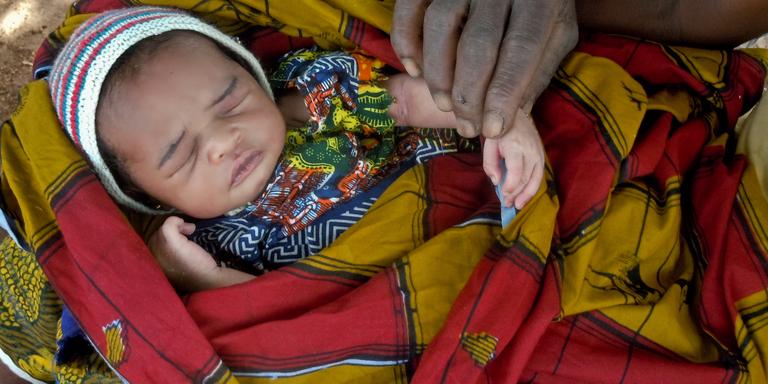
SWAP Project
The Saving Women and Preterm Babies (SWAP) projectâs in (2022 - 2025) and (2021 - 2025) aim to increase the survival of small and sick newborns, as well as prevent and manage specific maternal health conditions which can result in mortality for pregnant women and result in preterm births. In both countries, SWAP utilizes innovative technologies, including the machine and cutting-edge clinical decision-making tools (e.g., PRISMS in Uganda), as well as trainings and mentorships, to improve care for small, sick, and preterm newborns in health facilities. Trainings, mentorships, and quality improvement initiatives are also implemented in project facilities for the improvement of maternal health care, such as the identification and treatment of preeclampsia/eclampsia and postpartum hemorrhage. Finally, SWAP uses other technologies, such as , and new packages, like Family-Centered Care (Bangladesh), to enhance trainings for health care providers. Overall, the SWAP project draws from the latest evidence and technology to save maternal and newborn lives.
USAID Kulawa
USAID Kulawa (2020-2025) is the USAID Resilience in the Sahel Enhanced II (RISE II) Health Services Delivery , which works to improve access to and use of quality health services, strengthening ownership and management by communities, local government, and service providers. USAID Kulawaâmeaning âcareâ in Hausaâstrives to close the equity gap (the difference in abilities to access services) in maternal, newborn, and child health (MNCH), family planning/reproductive health (FP/RH), and nutrition service access and use. USAID Kulawa is implemented across 17 districts in three regions, reaching 1.4 million women of reproductive age, 1.1 million children under five, and 2.6 million youth.
Healthy Newborn Network
91²Ö¿â continues to manage the (HNN) (2010-present), an online community dedicated to addressing critical knowledge gaps in newborn health. A legacy of the (2000-2020), HNN brings together partner organizations and individuals working in newborn health to share key resources, data, experiences, and lessons and helps increase global commitment to advance newborn health. HNN also provides a platform for stakeholders to engage in discussions and working group activities on the vast range of newborn and maternal health topics.
MOMENTUM Country and Global Leadership
MOMENTUM Country and Global Leadership (2019-2024) is part of a , funded by USAID, which 91²Ö¿â implements with several other organizations. The overall is to holistically improve family planning and maternal, newborn, and child health in partner countries around the world. The project focuses on technical and capacity development assistance to ministries of health and other country partners to improve outcomes. MOMENTUM Country and Global Leadership builds upon existing evidence and best practices and catalyzes innovations that enable government-led partnerships to deliver high-quality, evidence-based interventions that accelerate reductions in maternal, newborn, and child mortality and illness at scale. The project also contributes to global technical leadership, learning, and USAIDâs policy dialogue to achieve global maternal, newborn, and child health, voluntary family planning, and reproductive health (MNCH/FP/RH) goals by supporting globally endorsed initiatives, strategies, frameworks, guidelines, and action plans.
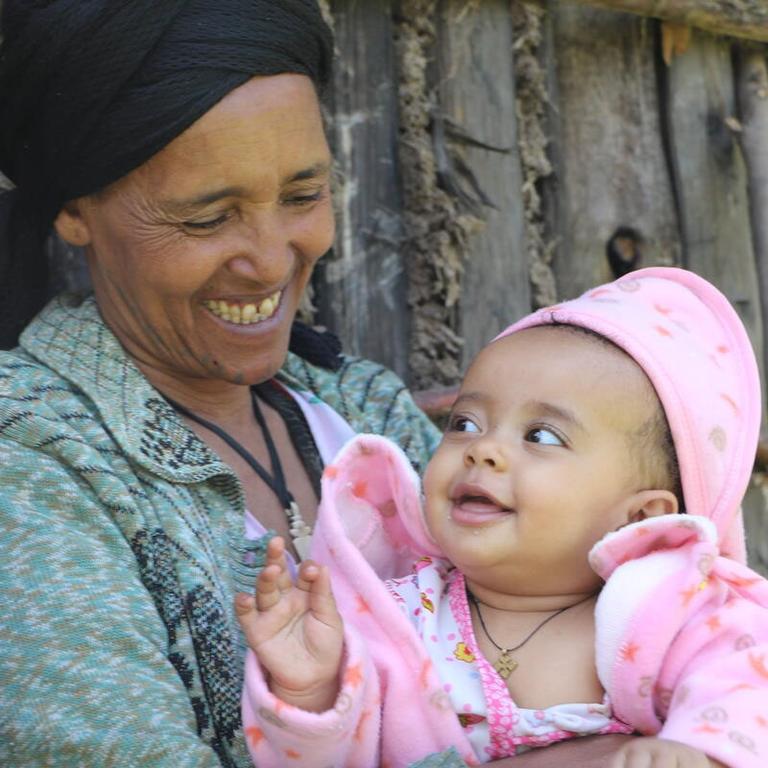
Yezab Nega is a mother of six and a farmer who lives in the Southern Gonder region in Ethiopia. She no longer has to worry about her childâs nutritional needs due to her involvement in GTNâs nutritional village program.
Adolescent Nutrition Initiative
91²Ö¿â will be piloting interventions in three countries to generate evidence on how to improve adolescent nutrition. In 2023, we conducted formative research to inform the design of these pilot interventions in Ethiopia, Guatemala, and Uganda. Committed to giving adolescents a voice, understanding their perspectives, and responding to their preferences for engagement, our work is guided by an Adolescent Advisory Group in each country. Initially, these groups will work with research teams to plan the formative research, develop data collection instruments, and interpret the findings. In 2024, the research findings, as well as the inputs provided by the Adolescent Advisory Groups, will be central to informing the design, implementation, and evaluations of pilot interventions.
Lishe Mtambuka
Lishe Mtambuka (Crosscutting Nutrition) Project, is a USAID-funded, five-year (2023-2027), $39.9 million dollar project to improve maternal and child nutritional status in Tanzania through a multi-sectoral approach. Lishe Mtambuka aims to increase the number of children between 6-23 months receiving a minimum acceptable diet by 20% and strengthen the health and food market systems that promote the adoption of optimal nutrition-related behaviors across a range of stakeholders in targeted regions. The project hopes to achieve: 1) increased coverage of quality nutrition services at health facilities and community; 2) improved WASH services in communities; 3) improved consumption of safe, nutritious foods; and 4) increased capacity of councils to utilize data, plan, budget, and deliver quality nutrition services.
Management of Small and Nutritionally at-risk Infants under Six Months and their Mothers (MAMI)
MAMI is a two-year global project funded by the Latter-day Saint Charities that was launched in February 2023 with a goal of delivering comprehensive and context-appropriate MAMI care packages to begin to build a stronger MAMI Care Pathway across seven countries. Participating countries include Colombia, Kenya, Mozambique, Nigeria, NW Syria, Somalia, and Yemen. The project approach is multi-faceted and integrated, which includes developing and testing tools and resources to strengthen MAMI care packages, scaling-up existing MAMI programs, ensuring services are inclusive for adolescents and people with disabilities, and strengthening monitoring and evaluation (M&E) systems to ensure learning and evidence-generation to benefit the global good.
The MAMI project has been testing interventions packages, such as maternal mental health, maternal nutrition, care for small and sick newborns, and community tools, and making a significant impact in increasing access to MAMI care services for small and nutritionally at-risk infants under six months and their mothers.
Nutrition Sensitive Agriculture Capacity Strengthening in Ethiopia (NSA CASE)
In Ethiopia, our Bill & Melinda Gates Foundation-funded Nutrition-Sensitive Agriculture Capacity Strengthening in Ethiopia project (2019-2024) funds capacity strengthening activities that integrate nutrition into large-scale agriculture programs to enable the agriculture sector to effectively contribute to improving nutrition through improved dietary diversity. In line with the national Nutrition-Sensitive Agriculture Strategy, we closely collaborate with the Government of Ethiopia to structure human resources for nutrition-sensitive agriculture, facilitate monitoring and use of data for decision-making, strengthen coordination within the ministry, regional bureaus, and lower levels, and issue sub-grants to support systems strengthening for nutrition-sensitive agriculture.
USAID Momentum Country and Global Leadership
MOMENTUM Country and Global Leadership (2019-2024) is part of a suite of innovative awards funded by USAID that 91²Ö¿â implements with several other organizations. The overall aim of this program is to holistically improve family planning and maternal, newborn, and child health in partner countries around the world. It focuses on technical and capacity development assistance to ministries of health and other country partners to improve maternal, newborn, child health, voluntary family planning, and reproductive health (MNCH, FP/RH), and nutritional outcomes.Ìı
MOMENTUM Country and Global Leadership builds upon existing evidence and best practices and catalyzes innovations that enable government-led partnerships to deliver high-quality, evidence-based interventions that accelerate reductions in maternal, newborn, and child illness and death at scale. The project also contributes to global technical leadership, learning, and USAIDâs policy dialogue to achieve global MNCH/FP/RH goals by supporting globally endorsed initiatives. 91²Ö¿â in nutrition and country level nutrition programs in Ghana, Kenya, Nepal, Sierra Leone, and Tanzania to integrate and improve the quality of nutrition care and services as part of the reproductive, maternal, newborn, and child health continuum of care.
Momentum Tiyeni
In Malawi, 91²Ö¿â is working with consortium partners on Momentum Tiyeni, a five-year (2022-2026) USAID-funded activity to strengthen health systems and quality service delivery in MNCH/FP/RH, nutrition, and emerging health issues in five districts. SC supports the revitalization and scaling-up of the Baby Friendly Hospital Initiative ten steps and monitoring of the Code of Marketing of Breastmilk Substitutes to promote and support optimal breastfeeding practices in 21 health facilities; the revision and rollout of the national Community-Based Management of Acute Malnutrition guidelines; training of health providers on quality in-patient management of children with complicated severe malnutrition; and lastly, supporting the integration of the management of acute malnutrition into Integrated Community Case Management.
Resilience Food Security Activities (RFSAs)
91²Ö¿â is a preferred partner to lead nutrition and social and behavior change (SBC) components of USAID/Bureau of Humanitarian Assistance (BHA) funded RFSAs in multiple countries.
⢠In Mali, we are the prime partner to lead Albarka RFSA (2020 - 2025) that aims to improve food security and the resilience of communities in conflict-affected areas by strengthening local systems and effective community participation. To improve the nutritional outcomes of children and women, Albarka implements nutrition-sensitive activities and activities specific to the promotion and adoption of priority health and nutrition behaviors such as infant and young child feeding and dietary diversity at household and community level. The project uses community support groups and the Husband Schools approach to implement community nutrition activities, involve fathers, and empower women to increase adoption of optimal nutrition, health, and hygiene behaviors.Ìı
⢠We also lead the implementation of USAID Kulawa (2020 - 2025), which is a Resilience in the Sahel Enhanced II (RISE II) Health Services Delivery that works to improve equity, access to and use of quality MNCH/FP/RH, and nutrition services and strengthen ownership and management by communities, local government, and service providers.Ìı
⢠In Kenya, we are the lead partner for nutrition, adolescent, sexual, and reproductive health (ASRH), and community health systems of the Nawiri RFSA, which aims to reduce persistent acute malnutrition in Turkana and Samburu counties. To improve nutritional outcomes, the project implements community-led action through anchor groups for: Girls-H (Health), Boys, REAP for Nutrition, and Adapted Mother-to-Mother Support Groups.Ìı
⢠In Burkina Faso, SC is a key nutrition consortium partner of USAID/ViMPlus (Victory Against Malnutrition Plus) RFSA (2018 - 2025) which aims to strengthen the resilience and food and nutrition security of the most vulnerable populations in the Centre Nord Region. We provide technical support on nutrition and SBC, specifically to empower pregnant and lactating women to adopt optimal maternal, infant, and young child nutrition practices through the Groupes d'apprentissage et de suivi des pratiques d'alimentation du nourrisson et du jeune enfant (GASPAâs) approach. The GASPA is a communication platform at the community level where members discuss their personal experiences, share knowledge, and support each other under the guidance of an experienced mother facilitator.Ìı
⢠In Malawi, SC is the nutrition consortium partner of the USAID/Malawi Titukulane RFSA (2019 - 2024) that aims to achieve sustainable, equitable, and resilient food and nutrition security for ultra-poor and chronically vulnerable households in Mangochi and Zomba districts. We lead activities to improve infant, young child, adolescent, and maternal diets and nutrition practices, as well as improving access to quality nutrition services. SC also supports the promotion of dietary diversity through the establishment of homestead gardens and community-led complementary food and learning sessions.
